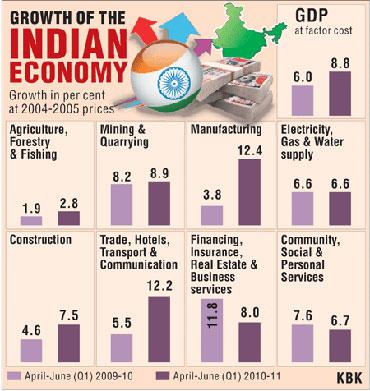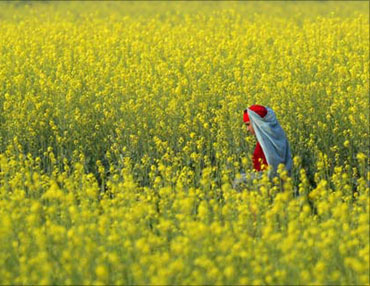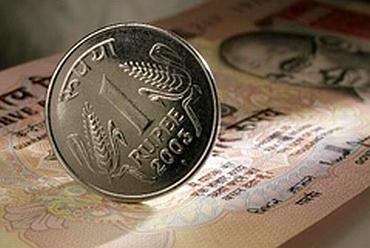 | « Back to article | Print this article |
Govt corrects the GDP figures!
Admitting its faus pax within a day, the government has revised the economic growth at market prices to 10.02 per cent for the quarter ending June 2010, from 3.65 per cent stated earlier.
Issuing a corrigendum to its figure issued on Tuesday, the Ministry of Statistics and Programme Implementation (Mospi) attributed the mistake to wrong calculation of deflators.
Deflators, which convert GDP data at current prices to constant prices, are used for factoring in inflation. Real GDP (excluding inflation) at market prices (what consumers pay) for the April-June quarter now stands at Rs 12,09,888 crore (Rs 12.09 trillion), from the earlier estimated figure of Rs 11,39,867 crore (Rs 11.39 trillion).
"Inadvertently there has been use of inappropriate deflators in converting quarterly estimate of expenditures of GDP at market prices in Q1 of 2010-11 (at current prices) to quarterly estimates of expenditures of GDP at market prices in Q1 of 2010-11 (at 2004-05 prices)," the ministry said in a statement.
Click NEXT to read more...
Govt corrects the GDP figures!
The wide difference of over 5 per cent between real GDP growth at market prices (3.65 per cent) estimated on Tuesday and factor cost (8.8 per cent) had led to confusion among experts.
Officials said the difference between the growth rate of GDP from two methodologies generally ranges between two and three per cent.
Earlier in the day, Finance Minister Pranab Mukherjee said in Mumbai, "Criticism has been made about the projection from the demand side that it is not matching with the growth that has been projected and that will have to be addressed."
Click NEXT to read more...
Govt corrects the GDP figures!
The CSO (Central Statistical Organisation) sometimes corrects the figures as they are based on random surveys, he had said.
"Therefore, if there are some errors here and there, the revised figure will be given," the Finance Minister added. GDP at market prices estimate the figures from expenditure or demand side, while GDP at factor cost estimates the numbers from production, or supply side. The difference between the two is that GDP at market prices include indirect taxes, while GDP at factor cost excludes them.
Click NEXT to read on...Govt corrects the GDP figures!
On the growth prospects for the Indian economy this fiscal, Finance Minister Mukherjee said, "I am a bit conservative, but I will be too happy if the growth becomes 8.75 to 9 per cent... But I am trying to confine my observations between 8.5 to 8.75 per cent."
The economy grew by 7.4 per cent during 2009-10. Following the global economic meltdown, the growth rate slipped to 6.7 per cent in 2008-09 from over 9 per cent during the three preceding years.
Despite the monsoon being good so far this year, the Finance Minister said that certain uncertainties do exist, considering the size and magnitude of the Indian economy.
The impact of rain deficiency in parts of Bihar, Jharkhand and West Bengal will have to be looked at and "we will have to wait for the ongoing kharif season to get over (to arrive at a final GDP figure)," he said.
The incorrect figures surprised many, since the International Monetary Fund has pegged Indian economic growth at 9.4 per cent at market prices for this calendar year, while the April-June, 2010 showed just 3.65 per cent. Mospi said as a result of incorrect deflators, some other figures like private and government final consumption expenditures were also revised.



